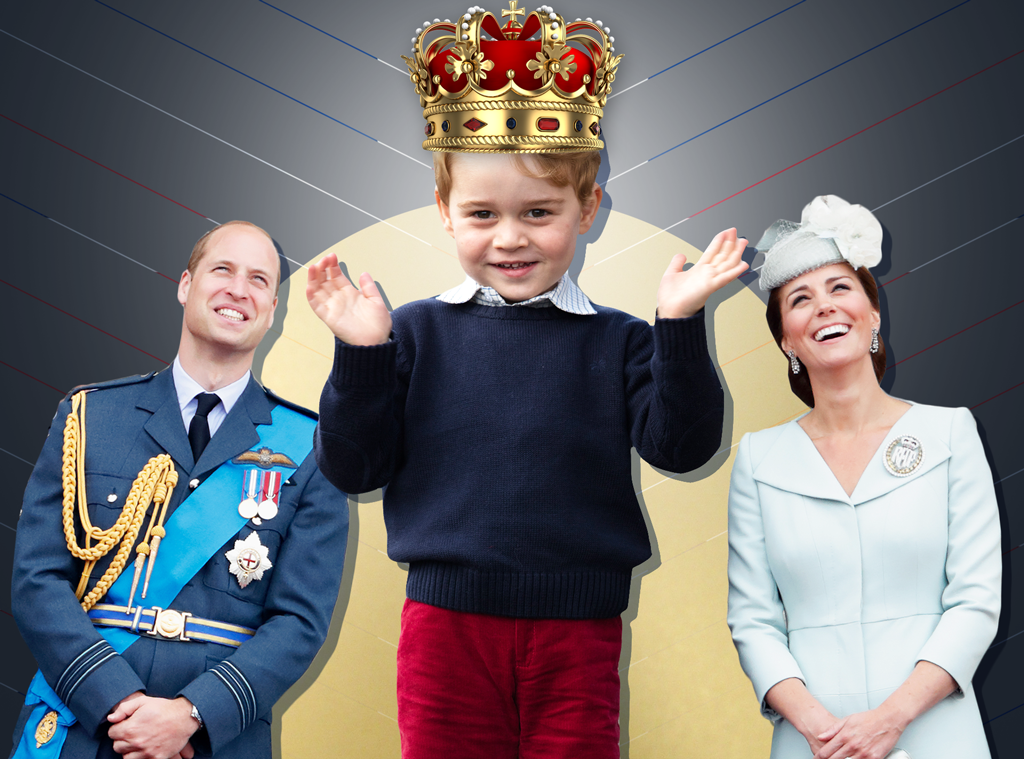
Getty Images; Melissa Herwitt/E! Illustration
One day, everything that the light touches, will belong to him.
Wait, that's The Lion King, but Prince George's birthright—reign over the United Kingdom and, as of now, 16 commonwealth realms—isn't too shabby.
Don't worry, the little lad hasn't yet been apprised of just what, exactly, is in store for him some decades down the road. He may be a big boy all of a sudden, turning 6 years old on Monday even though it feels as if he was just born, but it's still a little early for The Talk: "A king's time as ruler rises and falls like the sun..."
Oops, Lion King again. But still, that's a pretty universal lesson, especially if your universe includes lines of secession, crowns and thrones as George's does, whether he's aware of what it all means or not.
More so than any future king born before him, including his father Prince William and grandfather Prince Charles, George's royal education is being put on the back burner for as long as possible so that he can be a well-rounded student of the world first, and a prince maybe not even as a distant second. After all, he has so many other titles right now, including son, big brother, grandchild, great-grandchild and cousin.
"Stability at home is so important to me. I want to bring up my children in a happy, stable, secure world, and that is so important to both of us as parents," William told British GQ in 2017. "I want George to grow up in a real, living environment, I don't want him growing up behind palace walls, he has to be out there. The media make it harder but I will fight for them to have a normal life."
Most boys don't celebrate the big 0-6 on the super-exclusive Caribbean island of Mustique, as George is reportedly doing with his family this week, but William and Kate Middleton knew from the beginning that they wanted to raise their children to be as unaffected as possible by the House of Windsor's admittedly unusual circumstances.
They couldn't go as far as the queen's daughter, Princess Anne, in not giving their children titles—tradition regarding the lineage of the Prince of Wales, and future kings, and all—but it's unlikely that George has demanded that anyone call him "Your Royal Highness" yet.
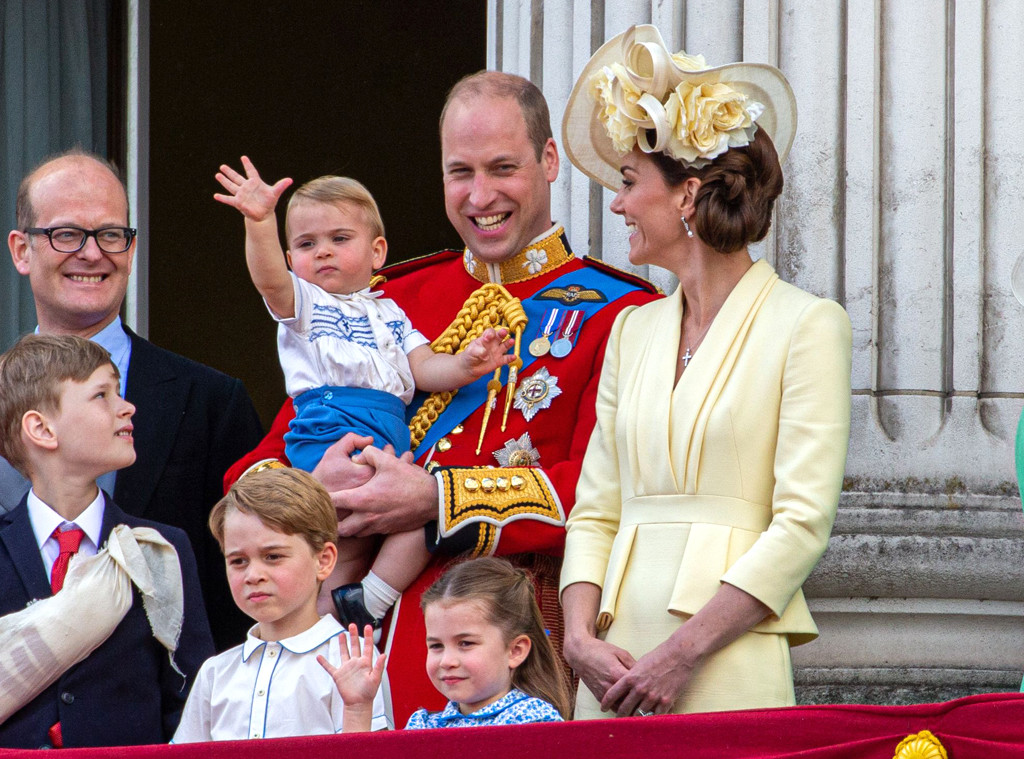
GEOFF ROBINSON PHOTOGRAPHY/Shutterstock
William didn't even know that he was second in line to the throne until other kids asked him about it at school, his parents having wanted him to just go about the business of being a kid. Princess Diana would tell him that all those photographers just wanted pictures of her, to pay them no mind.
Prince Charles, born when his grandfather King George VI was still alive, and therefore second in line at birth, also had no real idea of his place in the monarchy until he was a bit older and realized just why people were so interested in everything he did.
"I think it's something that dawns on you with the most ghastly inexorable sense," Charles said in an interview on the occasion of his 21st birthday in 1969, asked how he felt as a boy finding out that he would be king one day. "...And slowly you get the idea that you have a certain duty and responsibility."
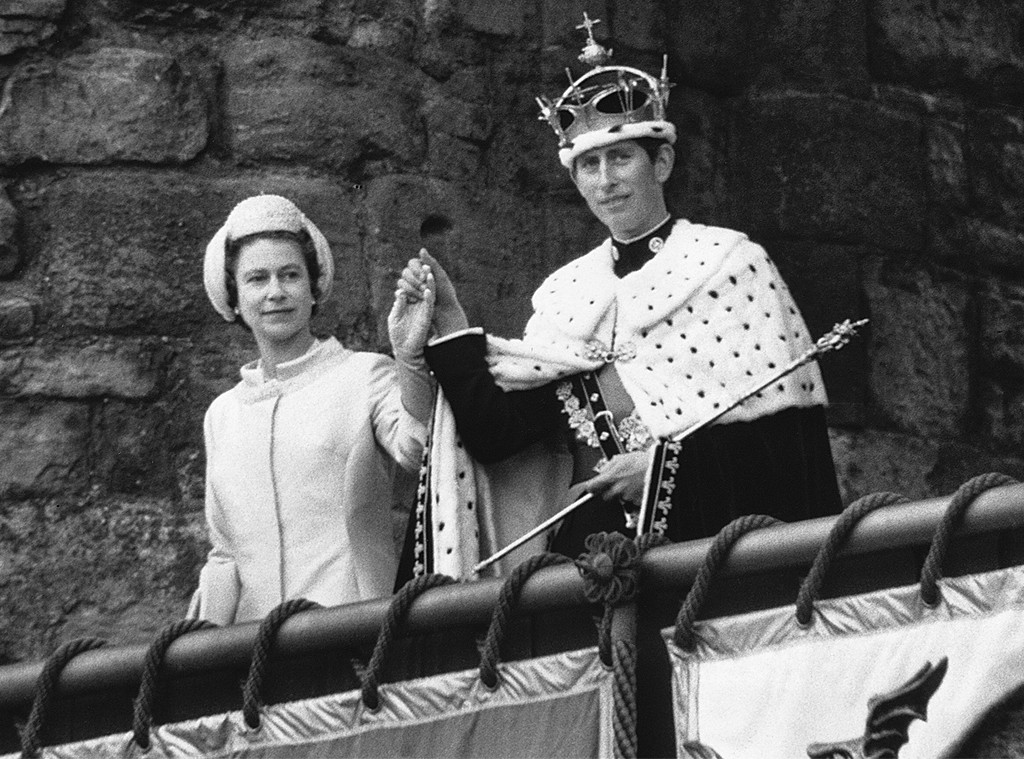
Hulton-Deutsch Collection/CORBIS/Corbis via Getty Images
He was further mortified at 9 years old when his mother, Queen Elizabeth II, announced on television (oh, the shame!) during the Commonwealth Games—which he was watching with a bunch of friends—that she was naming him the Prince of Wales.
That brought his tally of titles up to eight, and he eventually grew into them. He once said that his favorite of the bunch was Lord of the Isles. "I'm an incurable romantic, and it is a marvelously romantic title," he explained. (It comes into effect when he's spending time off the west coast of Scotland.)
Biographer Sally Bedell Smith described him in her 2017 book Prince Charles: The Passions and Paradoxes of an Improbable Life as "undeniably better prepared to be king than his twentieth-century predecessors as Prince of Wales." And not just because when he turned 65 in 2013 he became the oldest heir to the throne in 300 years.
Rather, Charles developed passions and a work ethic that made him into a fully functioning person rather than just an entitled polo-playing playboy or some disinterested stooge. He was the first member of the family to attend school as a boy outside the palace, Hill House School in Knightsbridge. His father, Prince Philip, said they wanted him "to absorb from childhood the discipline that comes from being educated with others."

Chris Jackson/Getty Images Royal Photographer
George has been pursuing his education outside of the house since he was 2 1/2, first at Westacre Montessori School in Norfolk, and then at Thomas's Battersea in south London, where tuition starts at $7,500 a year. The pioneering tyke is the first male in his branch of the family to go to a co-ed school before university. In fact, his 4-year-old sister, Princess Charlotte, will be joining him in September. Their cousin Maud Windsor, granddaughter of the queen's first cousin Prince Michael of Kent, is also a pupil there.
As the school notes on its website, the No. 1 rule at Thomas's Battersea is to "be kind."
When it came time to go to prep school back in the 1960s, Charles wanted to go to Eton, but his father insisted on Gordonstoun in Scotland, to toughen him up. (It didn't become co-ed until 1972.) The Queen Mother, Charles' grandmother, advocated for Eton as the ideal place for a future king, writing in a letter to her daughter the queen, per Bedell Smith, "One would not be involved in any controversies in a staunchly Protestant place like Eton Chapel!"
William and Harry would test those waters later on when they both went to Eton.
Charles and Princess Diana helped shake up the royal parenting routine by being far more hands-on with their kids, giving them baths and not relegating them to the nursery to be largely looked after by nannies. (William and Harry had nannies who they grew very close to—there's been speculation that one of them, Tiggy Pettifer, could be one of baby Archie's godparents, and Jessie Webb came out of retirement to lend a hand when George was born—but it's not as if the Prince and Princess of Wales weren't going to have help.)
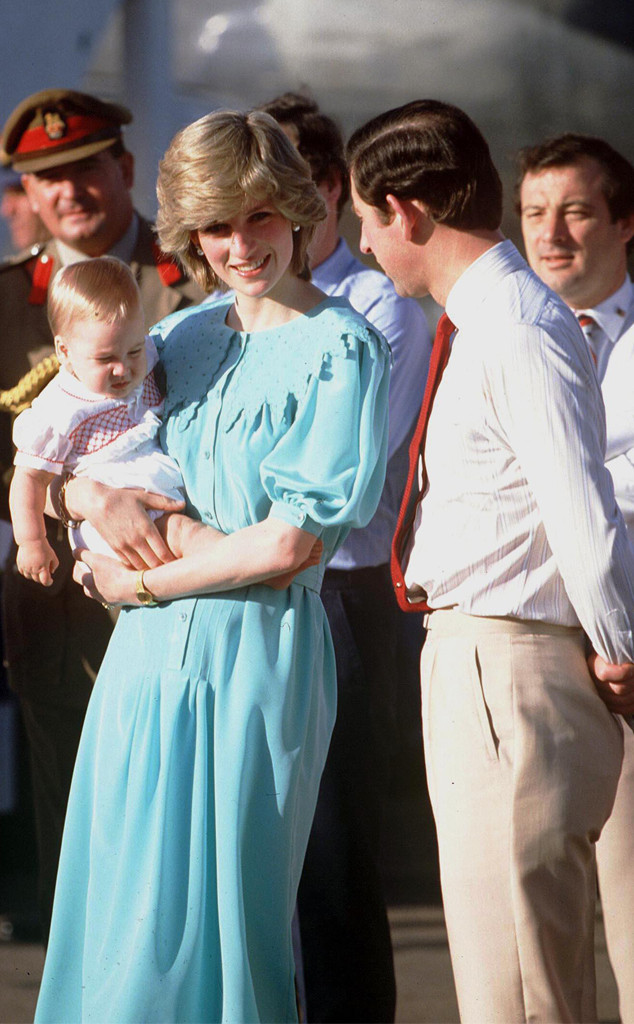
JSH TOUR/REX/Shutterstock
They brought 9-month-old William with them when they went on an official royal visit to Australia and New Zealand in 1983—a then-novel idea that stuck, with William and Kate bringing an 8-month-old George with them to Australia and New Zealand in 2014. Not surprisingly, Prince Harry and Meghan Markle are planning to travel to Africa with baby Archie in the fall.
"We didn't see very much of him, but at least we were under the same sky, so to speak," Diana later recalled the Australia tour in recordings she gave to biographer Andrew Morton. "That was a great fulfillment for me because everyone wanted to know about his progress."
Diana had her traditionally two-seater Jaguar XJ-S Cabriolet custom fitted with two special little seats in the back so she could drive William and Harry around herself (with her protection officer sitting in the front passenger seat, of course). When the boys got too big for the Jaguar, she bought a Mercedes 500SL—which caused quite a stir, as no member of Britain's royal family had ever purchased a foreign-made car before.
Even though Charles and Diana were leading increasingly separate lives by the late 1980s, they both still showed up for parent conferences and whatever else was important for their boys; they were both there to drop William off when he first went to boarding school at Ludgrove. While there, the headmaster helped in ensuring that William had the normal student experience, hiding the newspapers when there were unflattering stories about his parents' marital troubles. (The same happened at Eton: Charles and Di, with Harry, reunited for William's first day in 1995, and his housemaster aided with strive for normalcy.)
When they formally separated in 1992, Prime Minister John Major told the House of Commons that Charles and Diana would continue to reunite for important royal and national events and press on with the goal of giving William and Harry "a happy and secure upbringing."
"One thing I can always say about my mother is she smothered Harry and me in love," William told GQ. "Twenty years on I still feel the love she gave us and that is testament to her massive heart and her amazing ability to be a great mother... I would like to have had her advice. I would love her to have met Catherine and to have seen the children grow up. It makes me sad that she won't, that they will never know her."
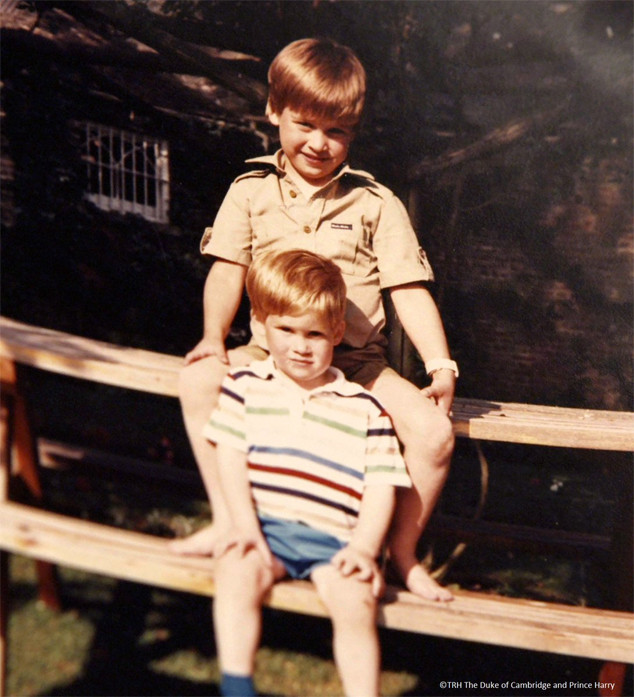
Kensington Palace
Aside from wanting them to feel loved and secure and cared for—all feelings that eluded Diana as a girl in the wake of her parents' divorce—the Princess of Wales also didn't want her sons to be stuck-up prats, either, so she also taught William and Prince Harry at an early age about the value of forging connections with people of all walks of life.
"I understand that change is frightening for people, especially if there's nothing to go to. It's best to stay where you are. I understand that," Diana told Panorama's Martin Bashir in 1995. "But I do think that there are a few things that could change, that would alleviate this doubt, and sometimes complicated relationship between monarchy and public. I think they could walk hand in hand, as opposed to be so distant."
Asked for an example, she replied, "Well, with William and Harry, for instance, I take them round homelessness projects, I've taken William and Harry to people dying of AIDS—albeit I told them it was cancer—I've taken the children to all sorts of areas where I'm not sure anyone of that age in this family has been before. And they have a knowledge—they may never use it, but the seed is there, and I hope it will grow because knowledge is power." (They obviously ended up using it.)

Terry Fincher/Getty Images
Diana said in the Morton tapes that she was subtly "altering" what it meant to be in William's shoes. "People aren't aware of it, but I am," she said. "I would never rattle their cage, the monarchy, because when I think the mother-in-law has been doing it for 40 years who am I to come along and change it just like that?
"But through William learning what I do, and his father to a certain extent, he has got an insight into what's coming his way. He's not hidden upstairs with the governess. I've chosen all the schools so far, and there was never any argument."
Similar to Charles' thoughts as a young boy about becoming king, William was "appallingly embarrassed by the whole thing. He's very uncomfortable about that."
At the same time, Diana was in a place where she was wishing that her estranged husband would go off for good with Camilla Parker-Bowles "and leave me and the children to carry the Wales name through to the time William ascends the throne. And I'd be behind them all the way and I can do this job so much better on my own; I don't feel trapped." She reiterated that to an extent to Martin Bashir in 1995, saying when asked if she would prefer William assuming the throne once he was of age, "My wish is that my husband finds peace of mind, and from that follows others things, yes."
Nowadays, however, the role of king is like a hot potato, nothing that anyone can admit to wanting to do but a role that still needs to be prepared for.
"How do I make the royal family relevant in the next 20 years' time—you know, it could be 40 years' time, it could be 60 years' time—I have no idea when that's doing to be and I certainly don't lie awake waiting or hoping for it because it sadly means my family have moved on and I don't want that," William said in a 2016 BBC special about his work as an air ambulance pilot.
Understandably, he's been perfectly happy to just focus on being a so-called normal dad to so-called normal kids in the meantime.
George is "a little bit of a rascal...He either reminds me of my brother or me when I was younger, I'm not sure, but he's doing very well at the moment," William, who broke all the molds when he changed his firstborn son's very first diaper, said on CNN's New Day when George was a month old.
"For me, Catherine and now little George are my priorities—and Lupo," he added, referring to their cocker spaniel. "As a lot of people know who have got dogs and bringing a newborn back, they take a little bit of time to adapt, but he's been all right so far. He's been slobbering around the house a bit, so he's perfectly happy."
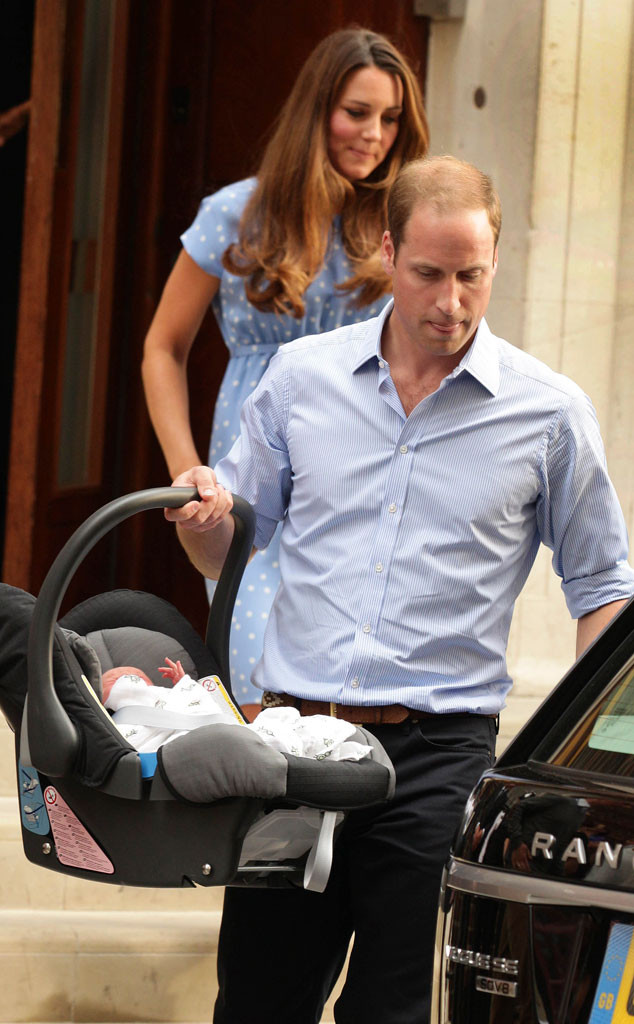
AP Photo/Yui Mok, PA
William also jolted the system when he strapped George's car seat into the Range Rover when they first took him home from the hospital—and then got behind the wheel and drove them all home.
"I'm as independent as I want to be, same as Catherine and Harry," the new father explained. "We've all grown up differently to other generations. I very much feel if I can do it myself I want to do it myself. And there are times when you can't do it yourself and the system takes over—or it's appropriate to do things differently.
"I'm just doing it the way I know," William continued. "And if it's the right way, then, brilliant. If it's the wrong way, then I try and do it better. I'm reasonably headstrong about what I believe in and what I go for and I've got fantastic people around me who give me great support and advice."
At the time, though, "the only legacy I want to pass on to him is to sleep more and maybe not to change his nappy quite so many times."
He gushed that Kate was doing "a fantastic job" as a mom so far.
Once Charles and Diana had officially separated, their parenting styles started to diverge in at least one respect: She became more public with the boys while he preferred to keep family time to themselves.
"I feel very strongly that they should be protected as much as possible from being dragged from pillar to post," he said at the time, per Bedell Smith. "I don't want them to do too many official things until they have to."
Diana later told Bashir that the reason she was so adamant about taking them on all sorts of outings was, "I want them to have an understanding of people's emotions, people's insecurities, people's distress, and people's hopes and dreams."
Both sentiments, uttered decades ago, have helped shape William and Kate's current approach to parenting.
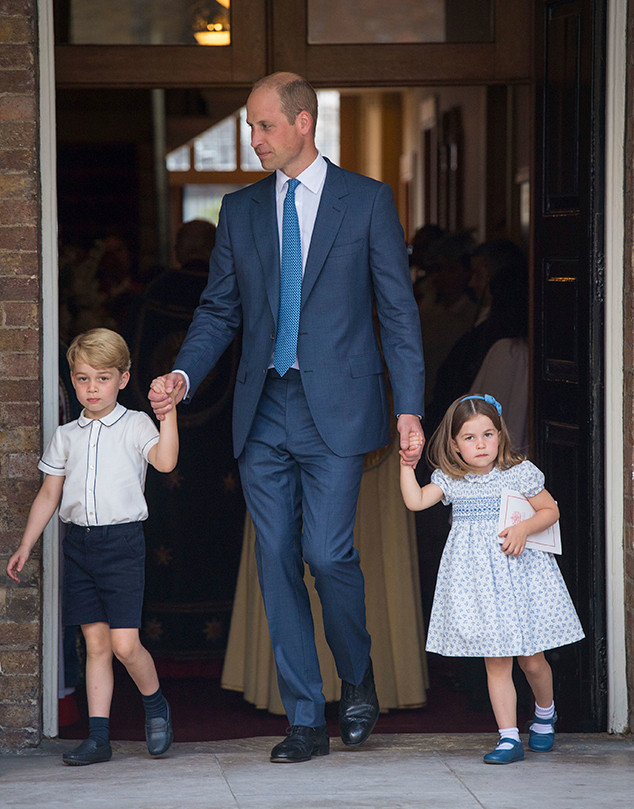
Dominic Lipinski/Pool Photo via AP
"I have two children, as you probably know," William, whose third child was on the way, said in 2017 in his keynote address at the Charity Commission's annual Public Meeting, "and when I first became a father about four and half years ago, I began a process of thinking about the way I had been brought up, and the values that my parents had instilled in me.
"As any parent will know," he continued, "this process is not necessarily one that you undertake consciously—you find that certain values and habits, ones that you didn't know you had, start bubbling up to the surface. Some of my earliest memories relate to times that my parents spoke to me or—even better—showed me what it meant to have both privilege and responsibilities."
By observing their respective commitments to worthy causes, he recalled, "Without my realizing it, what my parents were doing was instilling in me and Harry a lifelong habit to put charity at the heart of our lives."
All values William and Harry will duly pass along to their children, but at first in a more private capacity.
"I think royal duty is extremely important," William also told the BBC. "It's part of the fabric of what the royal family and any future monarch has. I take my responsibilities very seriously. But it's about finding your own way at the right time and if you're not careful duty can sort of weigh you down an awful lot at a very early age, and I think you've got to develop into the duty role."
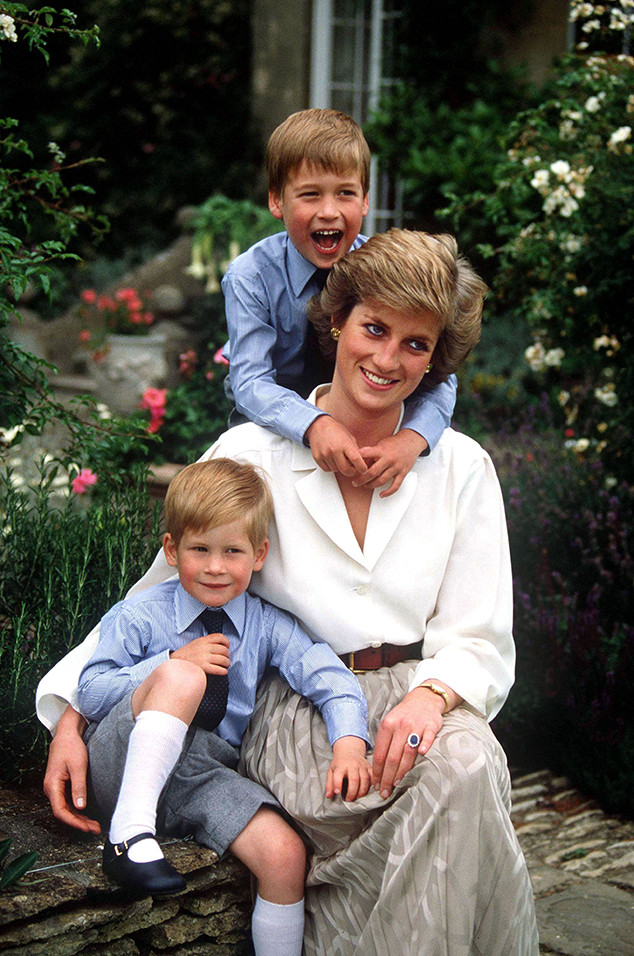
Jayne Fincher/courtesy of HBO
Though Diana was said to be considering a full retreat from public life before she died in 1997, earlier in the decade she had grand designs on what she could still accomplish with her platform as the Princess of Wales.
"I think I'm going to cut a very different path from everyone else," Diana said. "I'm going to break away from this set-up and go help the man on the street. I hate saying 'man on the street'—it sounds so condescending. I don't know yet but I'm being pushed more and more that way."
The torch has indeed been picked up by William and Harry, who along with their wives are very much "out there," and have been committed to extending her legacy. Luckily, being the royals, they have the resources, the connections and the flexibility to hit the ground running.
To an extent.
The family acknowledges that there are limits to what they can do, being the people they are.
Asked why he didn't run the London Marathon himself, after his and Kate and Harry's Heads Together campaign christened the 2017 race the "Mental Health Marathon," William explained to GQ, "I would love to, but from the policing point of view, they tested it and they were like, 'What?'"
So, logistical difficulties, mainly.
But overall, the plan to groom future kings by raising upright, well-rounded, empathetic young men to lead the monarchy into the future is moving along accordingly.
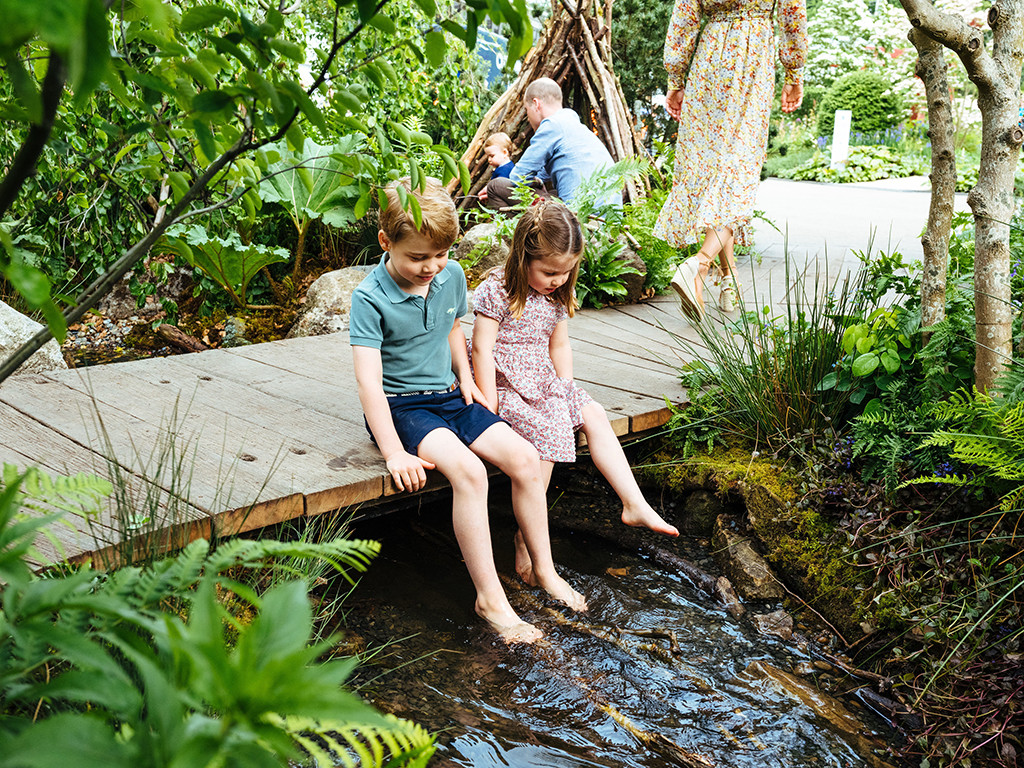
Matt Porteou / Press Association
"The great thing is to encourage them," Charles told a ladies' circle on a visit to Wales shortly before George, his first grandchild, was born. "Show them things to take their interest. My grandmother did that; she was wonderful." As for himself, he agreed, "It's very important to create a bond when they are very young."
Kate and William have made sure that George and Charlotte are immersed in activities, whether it's arts and crafts, baking or gardening—their mother got them both involved when she designed a garden space for the Chelsea Flower Show this year. One-year-old Prince Louis was only old enough to toddle around while his big brother and sister did some more serious exploring, but his time will come.
Moreover, the kids have their chores, such as making sure their toys are put away, and everyone pitches in taking care of Lupo.
William said last year at a reception at Kensington Palace for law enforcement from Scotland Yard that George was "obsessed, actually, by the police...cars, toys, everything." In fact, the the only thing on his list for Santa in 2017 was a police car.
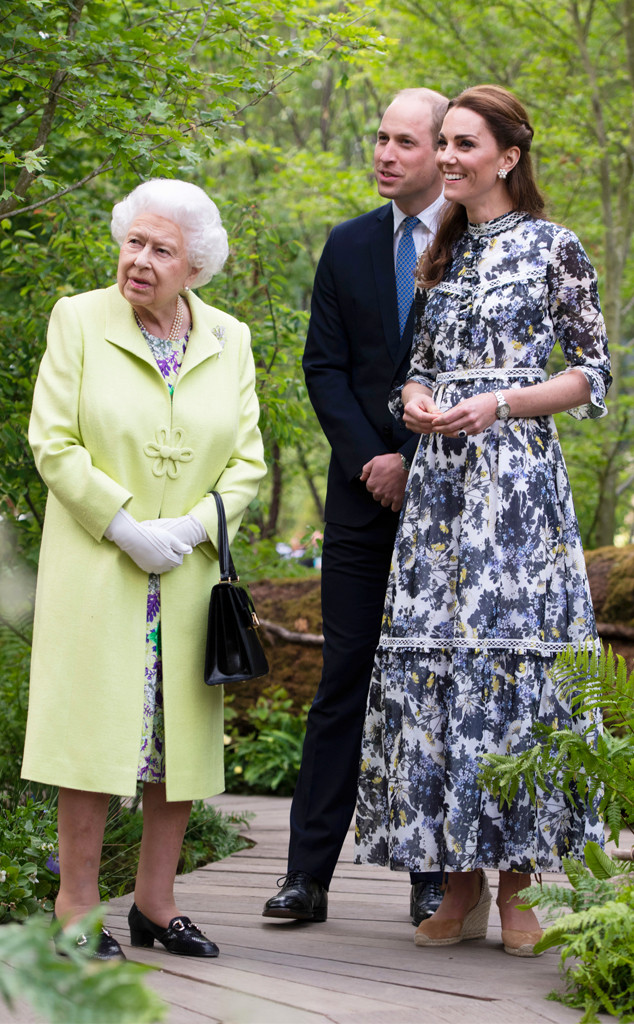
REX/Shutterstock
When it does come time to focus on the brass tacks of assuming the throne, they have the supreme role model in George's great-grandmother, or Grannie as the younger generations call her, Queen Elizabeth II.
"My grandmother has done a remarkable job leading the country," William asserted to GQ. "Her vision, her sense of duty, her loyalty, her steadfastness, it has been unwavering."
That being said, "You learn on the job. There is no rulebook. I sometimes wonder if there should be, but in the end I think probably not. Having that difference in how we do things makes the Royal Family more interesting and more flexible. If we all followed the same line, it would all be quite stifled. Our characters are different and the different opinions are important to have."
Members of the royal family aren't supposed to get involved in politics, for instance, be it to endorse a candidate or party or throw their weight around in influencing policy, but Prince Charles has notably—and controversially—pushed those boundaries by not only being quite vocal about the causes he's passionate about but also relaying exactly what he thinks should be done.
"My father has always come at this from a depth of knowledge and a desire to help," said William, who says he himself probably won't be writing advice to 10 Downing Street but is happy to connect someone with a cause with the right person up the food chain. "He only gets involved in anything when he has those two things: knowledge matched to a desire to help. He genuinely cares. We can argue till the cows come home about whether what he says is right or wrong, but he lives this stuff every day, goes into minute detail, wants to help inform opinion and provide knowledge. I would love to know what the public really think, whether they feel shocked or pleased he gets involved.
"He has done this for a long, long time, and I think he has used his role really well to raise a lot of questions that people need to ask."
These generations of royals doesn't advocate silence, that's for sure, both when it comes to causes that are important to them—such as the homeless crisis, veterans services and mental health care—and when it comes to their own personal, private feelings. Unlike the push-it-aside stoicism practiced by those of Prince Philip's era—and to an extent Charles himself, when it came to maintaining the royal family's image befitting a centuries-old institution—William and Kate want their children to feel free to express their emotions.
"If I look at my parents' generation, there was a lot more stiff upper lip going on," William acknowledged. "Don't get me wrong, there is a time and a place for the stiff upper lip, and, for those of us in public life, times when you have to maintain it, but behind closed doors, in normal everyday life, we have to be more open and upfront with our feelings and emotions."
That being said, he knows from personal experience, having lost his mother at 15 and then being encouraged to walk behind her coffin in the funeral procession in front of a billion people, what it's like to want to fall apart in public but can't because it's out of the question.

Jane Barlow/pool photo via AP
William added, "You have to project the strength of the United Kingdom—that sounds ridiculous, but we have to do that. You can't just be carrying baggage and throwing it out there and putting it on display everywhere you go. My mother did put herself right out there and that is why people were so touched by her. But I am determined to protect myself and the children, and that means preserving something for ourselves. I think I have a more developed sense of self-preservation."
For now, George has the luxury of getting to focus on cake and ice cream, on play dates and homework, on bonding with his siblings and doting on his new baby cousin—on being a kid. His parents know that certain lessons will have to be learned eventually, but they're in no rush. Besides, first king's first.
"We now have three generations of working royals, four altogether, and having that movement through the generations allows for the monarchy to stay relevant and keep up with modern times," William said. "You are only as good as your last gig and it is really important you look forward, plan, have a vision."
https://www.eonline.com/news/1058088/how-kate-middleton-and-prince-william-are-really-getting-prince-george-ready-to-be-king
2019-07-22 10:00:00Z
CBMifGh0dHBzOi8vd3d3LmVvbmxpbmUuY29tL25ld3MvMTA1ODA4OC9ob3cta2F0ZS1taWRkbGV0b24tYW5kLXByaW5jZS13aWxsaWFtLWFyZS1yZWFsbHktZ2V0dGluZy1wcmluY2UtZ2VvcmdlLXJlYWR5LXRvLWJlLWtpbmfSAX5odHRwczovL20uZW9ubGluZS5jb20vYW1wL25ld3MvMTA1ODA4OC9ob3cta2F0ZS1taWRkbGV0b24tYW5kLXByaW5jZS13aWxsaWFtLWFyZS1yZWFsbHktZ2V0dGluZy1wcmluY2UtZ2VvcmdlLXJlYWR5LXRvLWJlLWtpbmc
Tidak ada komentar:
Posting Komentar